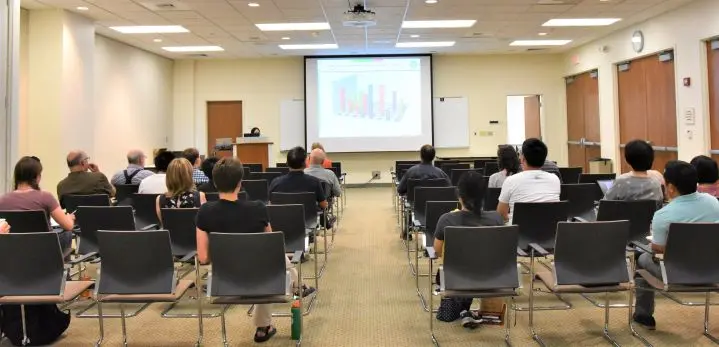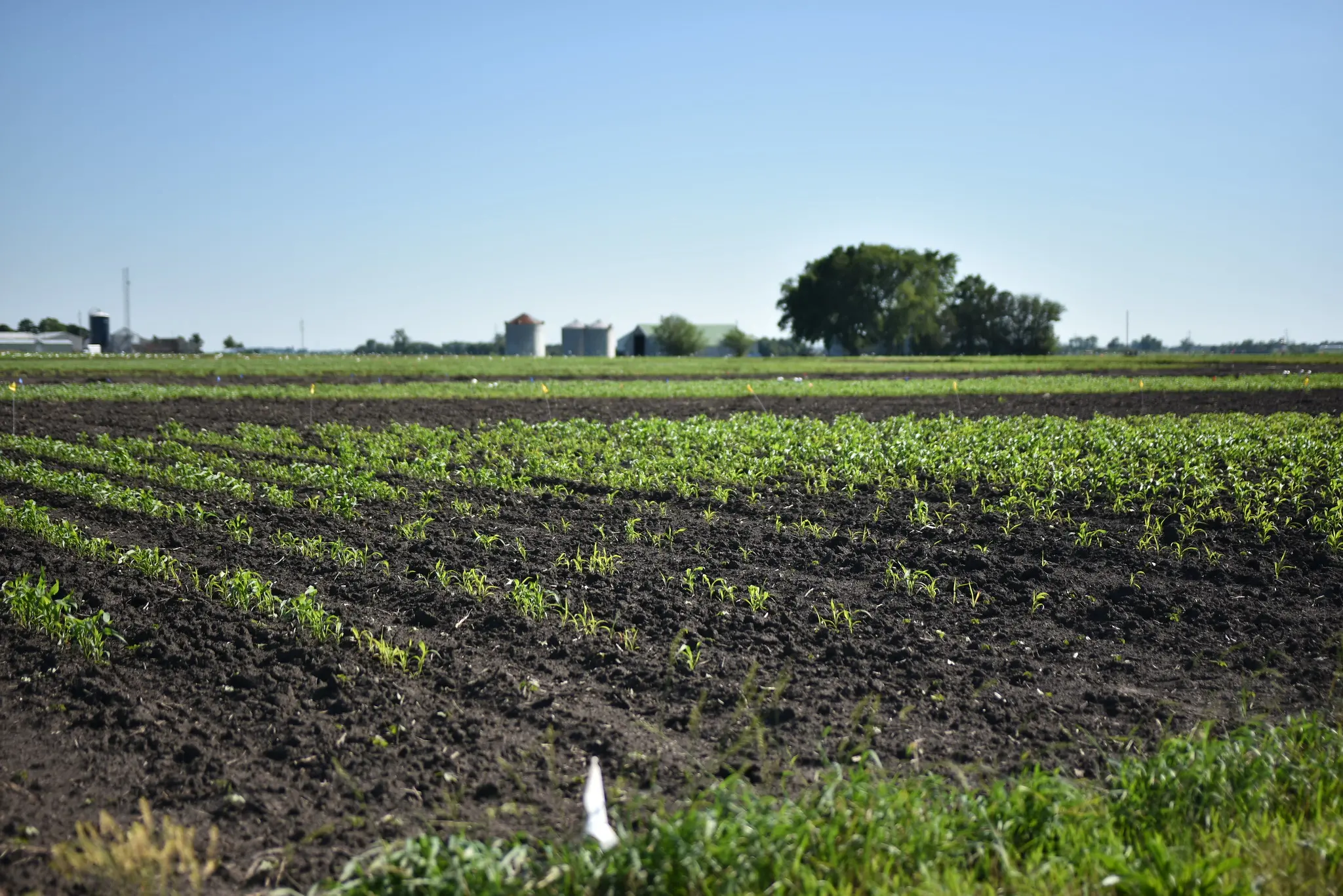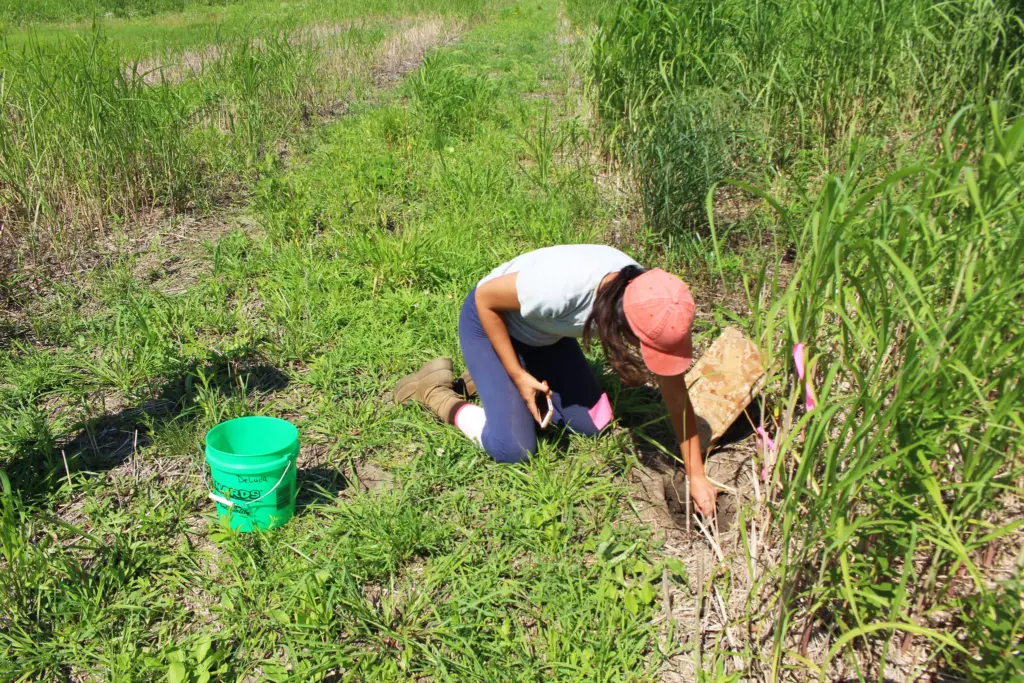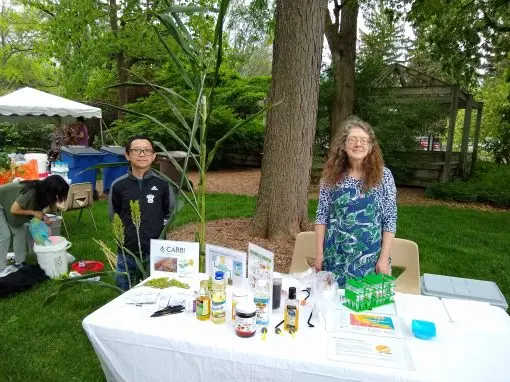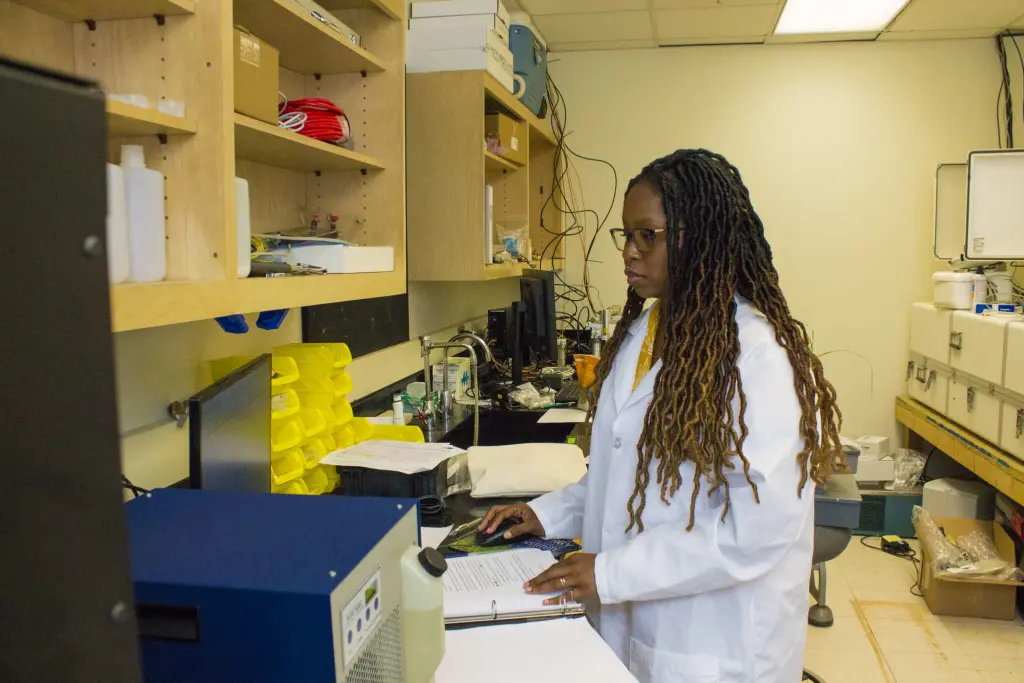
CABBI scientists showcase their research and their knowledge by staying involved with events and projects on their campuses and in local communities. The Center is excited to be involved with educational partnerships, public presentations, and student mentoring. A sampling of outreach initiatives is below.
Research Internship in Sustainable Bioenergy (RISE)
A highlight of CABBI’s outreach activities is a paid summer internship for undergraduate students to build the talent pipeline. This program offers bioenergy research opportunities across CABBI sites.
Learn More

Ongoing Outreach Activities
At West Virginia University
- CABBI researchers from WVU
At the University of Illinois Champaign-Urbana
- CABBI and the IGB at UIUC sponsored a team of seven undergraduate students and their graduate student mentors to take part in the annual iGEM competition (International Genetically Engineered Machine).
At the University of Nebraska at Lincoln
- CABBI researchers and staff from Nebraska will participate in the UNL Women in Science Day in April 2021 with hands-on laboratory activities for high school students from across Nebraska to promote interest in STEM education and careers. CABBI also participated in the event in 2018 and 2019; the 2020 event was postponed by the COVID-19 pandemic.
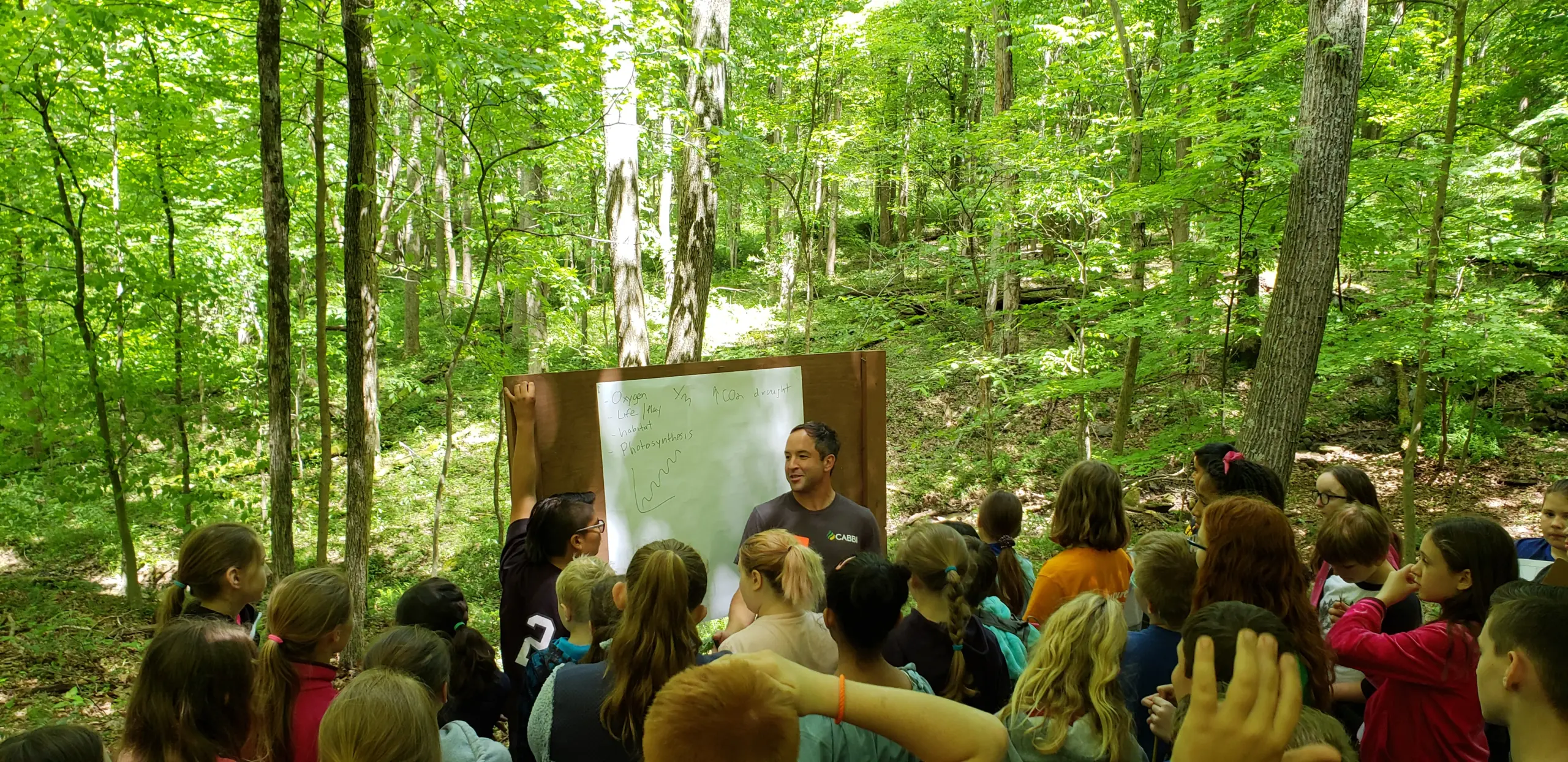
At West Virginia University
- In May 2019, Eddie Brzostek (photo, above) and his lab members hosted a group of fifth-graders from Eastwood Elementary School to the WVU research site.
At the University of Nebraska at Lincoln
- Nebraska scientists highlighted CABBI research on May 18. 2019, at its Fascination of Plants Day (larger photo, right) in the Maxwell Arboretum on the UNL East Campus.
- CABBI researchers and staff from Nebraska participated in the UNL Women in Science Day in March 2019 (smaller photo, right) with hands-on laboratory activities for women high school students from across Nebraska to promote interest in STEM education and careers. CABBI also participated in the event in April 2018.

At Brookhaven National Laboratory
 BNL is participating in the U.S. Department of Energy’s Science Undergraduate Laboratory Internships (SULI) program. In 2018, an internship went to Stony Brook University’s Brian Samuelson, a Biology major. Samuelson’s description of his work: “My work at Brookhaven National Laboratory focuses on understanding how oil is synthesized and stored in plant vegetative tissues such as leaves and stems. We use Arabidopsis thaliana and tobacco as model systems to help identify enzymes and metabolic regulators involved in oil metabolism in leaves. In the lab, I help with Arabidopsis seed planting on agar plates and seedling transfer from plates to soil. I use adult plants for DNA extraction, oil quantification by thin layer chromatography, protein analysis by Western blotting, and SDS-PAGE for protein expression. I also help with agrobacterium-mediated plant transformation to test some candidate genes for their ability to alter oil production in leaves. This work is exciting to me because increasing oil accumulation in vegetative tissues has potential to expand biofuel production from renewable resources, therefore reduce our dependence on depleting petroleum fuels.”
BNL is participating in the U.S. Department of Energy’s Science Undergraduate Laboratory Internships (SULI) program. In 2018, an internship went to Stony Brook University’s Brian Samuelson, a Biology major. Samuelson’s description of his work: “My work at Brookhaven National Laboratory focuses on understanding how oil is synthesized and stored in plant vegetative tissues such as leaves and stems. We use Arabidopsis thaliana and tobacco as model systems to help identify enzymes and metabolic regulators involved in oil metabolism in leaves. In the lab, I help with Arabidopsis seed planting on agar plates and seedling transfer from plates to soil. I use adult plants for DNA extraction, oil quantification by thin layer chromatography, protein analysis by Western blotting, and SDS-PAGE for protein expression. I also help with agrobacterium-mediated plant transformation to test some candidate genes for their ability to alter oil production in leaves. This work is exciting to me because increasing oil accumulation in vegetative tissues has potential to expand biofuel production from renewable resources, therefore reduce our dependence on depleting petroleum fuels.”
At West Virginia University
 Members of the Eddie Brzostek Lab helped judge a local school science fair in May 2018 that focused on how light, nutrients, and talking to plants impacted growth. Later in the day, the team participated in a family Science, Technology, Engineering and Mathematics (STEM) fair, which included activities to introduce students and families to science, and how soil respiration shifted as a function of air and soil temperature as well as carbon content. The team also walked families through a poster showing how bioenergy grasses might help mitigate future environmental change and provide energy security.
Members of the Eddie Brzostek Lab helped judge a local school science fair in May 2018 that focused on how light, nutrients, and talking to plants impacted growth. Later in the day, the team participated in a family Science, Technology, Engineering and Mathematics (STEM) fair, which included activities to introduce students and families to science, and how soil respiration shifted as a function of air and soil temperature as well as carbon content. The team also walked families through a poster showing how bioenergy grasses might help mitigate future environmental change and provide energy security.- A field site event in West Virginia in June 2018 (photo, right) was attended by 100 elementary school students, who learned about carbon and nitrogen cycling in ecosystems — and how healthy ecosystems store carbon, provide clean water, and promote biodiversity. The students measured photosynthesis, soil respiration, invertebrate diversity, nutrient levels, and root biomass.
At HudsonAlpha Institute for Biotechnology
- A researcher at HudsonAlpha discussed CABBI work in 2018 with high school educators enrolled in Genetic Technologies for All Classrooms (GTAC): Advanced Concepts, and spoke at a workshop to more than 100 high school life science educators about “genomics in the field.”
At the University of Nebraska at Lincoln
- The university developed a curriculum and hosted a two-day high school teachers’ workshop on plant oils in 2018.
At the USDA Agricultural Research Service
- CABBI scientists participated in the 2018 Engineering Day in Peoria, Ill., with a biopolymers theme that was attended by approximately 1,800 people.
At Iowa State University
- CABBI scientists participated in 2018 outreach activities directly to the farming community through extension programs in Iowa.

